Detailed introduction of University of Ioannina:
Introduction and Overview
The University of Ioannina is one of the largest institutions in Greece. It is a comprehensive university based on departments. The school offers undergraduate and graduate courses. All courses offered reflect the knowledge system reorganized from traditional theories. Related majors belong to one college, which expands the breadth of knowledge.
History and Establishment
The school was established in 1964 as a branch of Aristotle University of Thessaloniki and became an independent university in 1970.
School Strength
Faculty: As of 2017, the school has 580 teachers, 171 teaching assistants and 132 technical laboratory personnel, and 420 administrative service personnel.
Academic Research: The research results in the fields of medicine and life sciences, physics, mathematics, computer science, etc. are relatively outstanding. According to the 2014 Leiden University ranking of Greek universities, the school ranks 1st in medicine and life sciences, 2nd in physics, 2nd in mathematics, 2nd in computer science, 3rd in earth sciences, and 2nd overall.
International cooperation: It is a member of the Balkan University Network and actively cooperates and exchanges with universities and research institutions in other countries.
Nature of the institution
Public university.
Educational philosophy
Focus on the reorganization and innovation of traditional theoretical knowledge, emphasize the breadth and depth of knowledge, and strive to cultivate students' comprehensive literacy and innovation ability, so that students can not only master solid professional knowledge in the learning process, but also cultivate critical thinking and the ability to solve practical problems, closely combine teaching and research, encourage students to participate in scientific research activities, and improve students' academic level and research ability.
Key laboratories and disciplines
Key laboratories: It has many advanced laboratories, such as the laboratories of the School of Medicine are equipped with advanced experimental equipment, which provides good conditions for medical research and teaching; the laboratories of the Department of Computer Science and Engineering carry out cutting-edge research in the fields of artificial intelligence, network technology, etc.
Key disciplines: The basic medicine major in the medical field ranks 601st in the world, the clinical medicine major ranks 702nd in the world; the physics major ranks 501st in the world. In addition, disciplines such as computer science, mathematics, and biology also have certain advantages.
Faculty
The school has several colleges, including the School of Philosophy, the School of Science, the School of Education, the School of Medicine, the School of Science and Technology, the School of Natural Resources and Business Administration, the School of Economics, the School of Art, etc. Specific departments include the Department of Philosophy, the Department of History and Archaeology, the Department of Philosophy Education and Psychology, the Department of Mathematics, the Department of Physics, the Department of Chemistry, the Department of Computer Science, the Department of Early School Education, the Department of Preschool Education, the Department of Medicine, the Department of Material Science and Engineering, the Department of Biological Applications and Technology, the Department of Economics, the Department of Plastic Arts and Arts Sciences, the Department of Business Administration, the Department of Food and Agricultural Products, the Department of Environment and Natural Management, etc.
Ranking
2025 QS World University Rankings: Not on the list.
2024 US NEWS World University Rankings: Ranked 839th.
2024 TIMES World University Rankings: Ranked 1001st.
Fees
Tuition fees at Greek public universities are relatively low. Undergraduates generally pay about 1,000-3,000 euros per year for tuition and registration fees, and master's tuition fees are around 2,000-5,000 euros per year. The specific fees may vary depending on the major.
Campus Environment
Geographic location: The campus is located 6 kilometers away from the center of Ioannina and is connected to the town via Greek National Road 5. It can be reached by public transportation or by car.
Buildings and Facilities: The campus covers an area of 3.4 square kilometers, with many open green spaces surrounding four main building complexes with a construction area of 170,000 square meters, including teaching buildings, offices, laboratories, libraries, auditoriums, etc. There are two student dormitories, as well as a multi-purpose building with a student restaurant and a large auditorium. The 18th-century Dourouti Monastery on campus is being renovated and will serve as a guest house for university visitors.
-
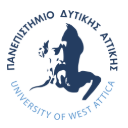
University of West Attica
-

Technical University of Crete
-

International Hellenic University
-
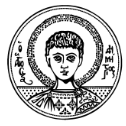
Aristotle University of Thessaloniki
-
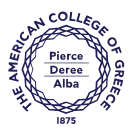
The American College of Greece
-
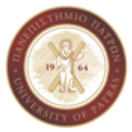
University of Patras
-

University of Ioannina
-

Democritus University of Thrace
-

Hellenic Open University
-
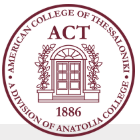
American College of Thessaloniki
-

Mesoamerican University
-

Istmo University
-

Mariano Galvez University of Guatemala
-

Regional University of Guatemala
-

Galileo University
-

Francisco Marroquín University
-

Rafael Landívar University
-

University of the Valley of Guatemala
-

University of San Carlos of Guatemala
-

Technological Institute of Tlaxcala Plateau
-

Golfo University
-

Technological University of South Sonora
-

Technological University of Huejotzingo
-

Tizimín Institute of Technology
-

Chilpancingo Institute of Technology
